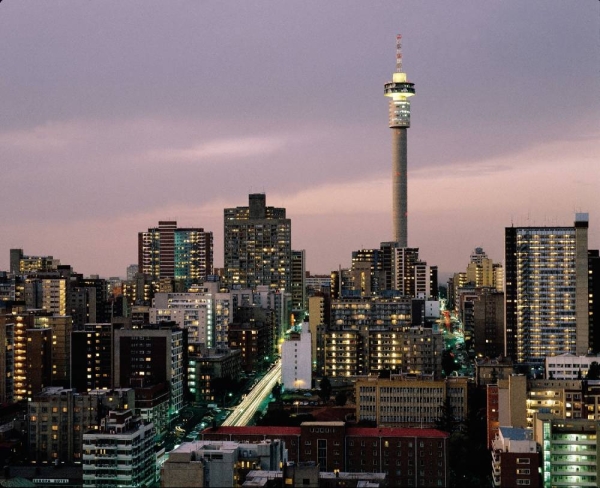The Saudi delegation’s visit to South Africa is part of Saudi Arabia’s commitment to strengthening its trade and economic relations with the African continent. This commitment was announced by Crown Prince Mohammed bin Salman at the Saudi-African Summit held in Riyadh last November. The forum, which took place nearly a year after the summit, highlighted King Salman’s initiative to implement development projects and programs worth over one billion dollars in African countries over a period of 10 years, along with $25 billion in Saudi investments in various vital sectors. These initiatives aim to boost trade and business relations between Saudi Arabia and South Africa, with the potential to increase the volume of trade exchange, reaching $3.5 billion by 2023.
The Saudi-South African Business Forum was recently opened in Johannesburg, with the participation of 420 leaders from the public and private sectors. Key attendees included Saudi Ambassador to South Africa Faisal Al-Harbi, South Africa’s Minister of Small Enterprise Development Stella Ndabeni Abrahams, and Minister of Tourism Patricia de Lille. South African Minister of Trade Parks Franklyn Mpho Tau described the economic partnership between the two countries as promising, highlighting the strategic importance of Saudi Arabia as South Africa’s gateway to the Middle East and South Africa as Saudi Arabia’s gateway to the African continent. With a population of 1.3 billion people in 54 countries and a GDP of $3 trillion, South Africa is seen as the largest free trade zone in the world.
During the forum, Deputy Minister of Commerce Dr. Iman Al-Mutairi presented the most prominent reforms implemented to enhance Saudi Arabia’s competitiveness. Over 820 economic reforms have been completed by 65 government agencies since 2016 in 9 main areas, along with the issuance and updating of 1,200 regulations and bylaws to support the legal framework. These reforms have made the business environment in Saudi Arabia one of the leading destinations on a global level for attracting companies and business owners. The Saudi Business Center has played a key role in re-engineering the procedures for starting and conducting business, leading to a 55% reduction in business licensing requirements. Additionally, Saudi Arabia allows 100% foreign ownership in most business sectors, further enhancing its attractiveness for foreign investors.
The forum included two dialogue sessions focusing on cooperation in the field of mining and expanding the economic partnership between Saudi Arabia and South Africa. Mechanisms to solve the challenges facing the business sector were also discussed, along with the South African side sharing its experiences in the tourism and industrial sectors. Two agreements were signed during the forum: one between the Saudi Export-Import Bank and ABSA and Standard Banks, and another MoU between the Saudi Export Development Authority and Sky Tower Development Company. These agreements aim to further strengthen trade relations between the two countries and promote collaboration in various priority economic sectors.
The forum’s activities were part of a working visit by a Saudi delegation consisting of officials from 15 government agencies and 31 businessmen and leaders from major national companies. The objective of the visit was to enhance trade relations in various priority economic sectors and elevate the level of economic partnership between Saudi Arabia and South Africa. With a focus on exploring promising opportunities for collaboration and addressing challenges in the business sector, the forum served as a platform for fostering economic ties and boosting trade between the two nations. Ultimately, the ongoing efforts to strengthen trade and economic relations between Saudi Arabia and South Africa reflect a shared commitment to mutual prosperity and sustainable growth.











